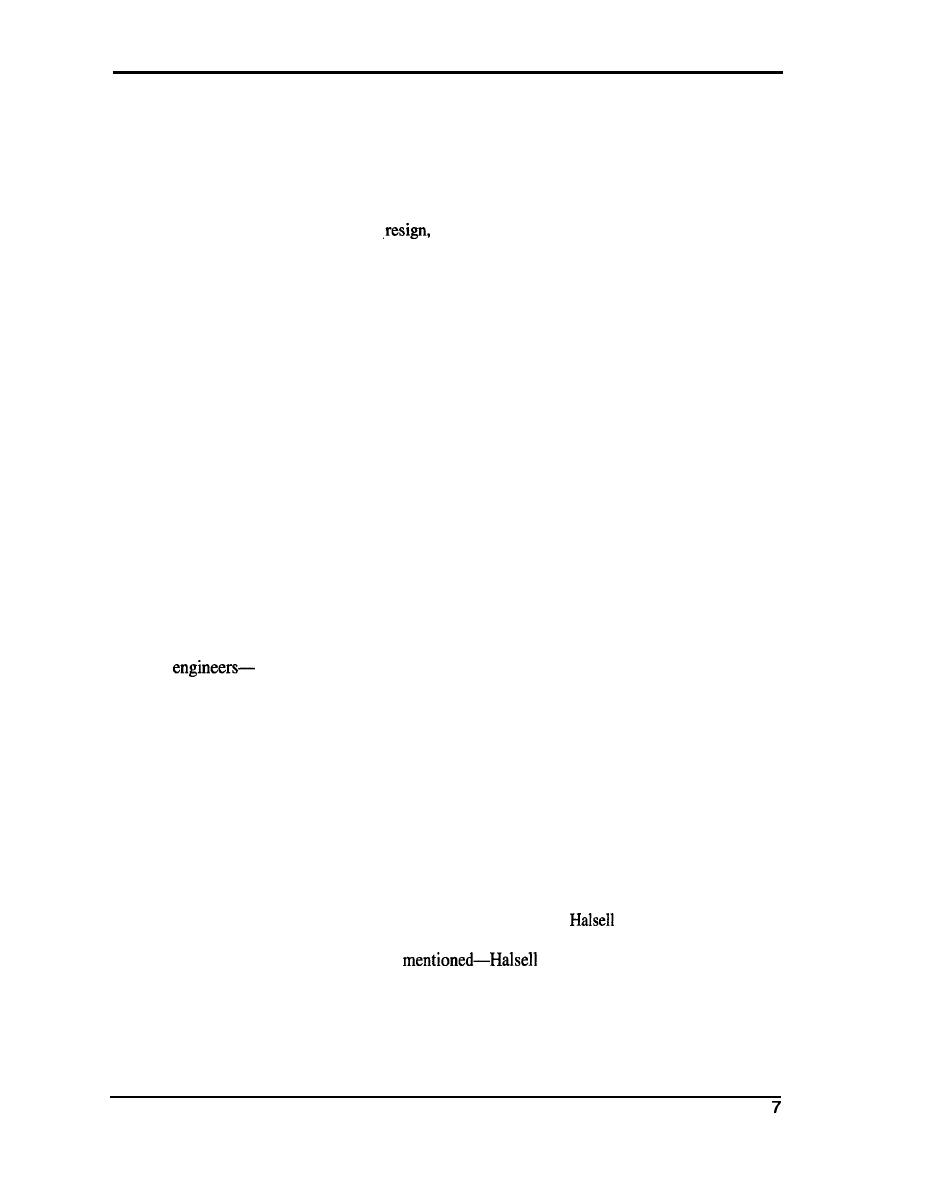
John W. Morris
A ..
Yes, and that changed our whole academic curriculum immediately. Major changes were made
in the voluntary or the optional portions. We concentrated on the hard-core portions of the
educational program.
It became a very tough course. The fact is, I think it had some significant advantages. It wasn't
just three years of the same old thing. We learned in three years what normally you'd get in four
years- t h a t is, the substantive courses. It put us into a different esprit. We were in a more
enthusiastic culture. We couldn't
so everybody's purpose in life became a lot more
focused. We knew that upon graduation it was off to war, unless the war had ended. So in
addition to the program changes, it had a big impact philosophically.
Q ..
How about some of the specific changes in the program?
A..
You mean, because of this?
Q ..
Yes.
A..
Well, the main thing was academics. Many of the officers up there were sent off to war-a lot
of the instructors. That meant more civilian instructors, and even the smartest of the class yet to
graduate were made instructors. I had several instructors who were first classmen, and they were
excellent instructors.
As our academic work program intensified, the athletic program was curtailed to some extent.
Not eliminated, just curtailed.
Q ..
What about training?
A ..
Military training?
Q ..
Yes. What kind of training was there?
A..
It was modified somewhat. Your branch training became more significant-branch training
meaning that training related to the branch you thought you were going to choose. That didn't
always mean the one you went into. I took branch training in coast artillery. I ended up going into
the
which is another day, another story. Actually, the whole attitude, the whole
atmosphere was quite changed. The things that we talked about changed. On the other hand, those
items in the military education curriculum which were applicable were retained-like the major
campaigns of Napoleon, the Civil War, et cetera. We continued to study those for their value in
military history and tactics and to some extent military engineering, but we didn't spend as much
time on those things which could be learned elsewhere later.
Q .. What about weapons?
A .. There was not great change in the weapons. There may have been some effort to modernize a few
items. I don't recall anything there.
Q .. You said that some of the upperclassmen became instructors and were quite good. Do you
remember who any of them were?
A ..
Yes. John Schremp, later an engineer colonel, retired. Henry J.
was an instructor. Gosh,
I don't know. There are a whole bunch of them I can think of that did teach. Many became
engineer officers later on. The two I
and Schremp-were both engineer
officers. My only problem now is it's been so long ago, I can't remember all of their names. Sy
Coker was another.
Q .. Was Jewett one of them?



 Previous Page
Previous Page
